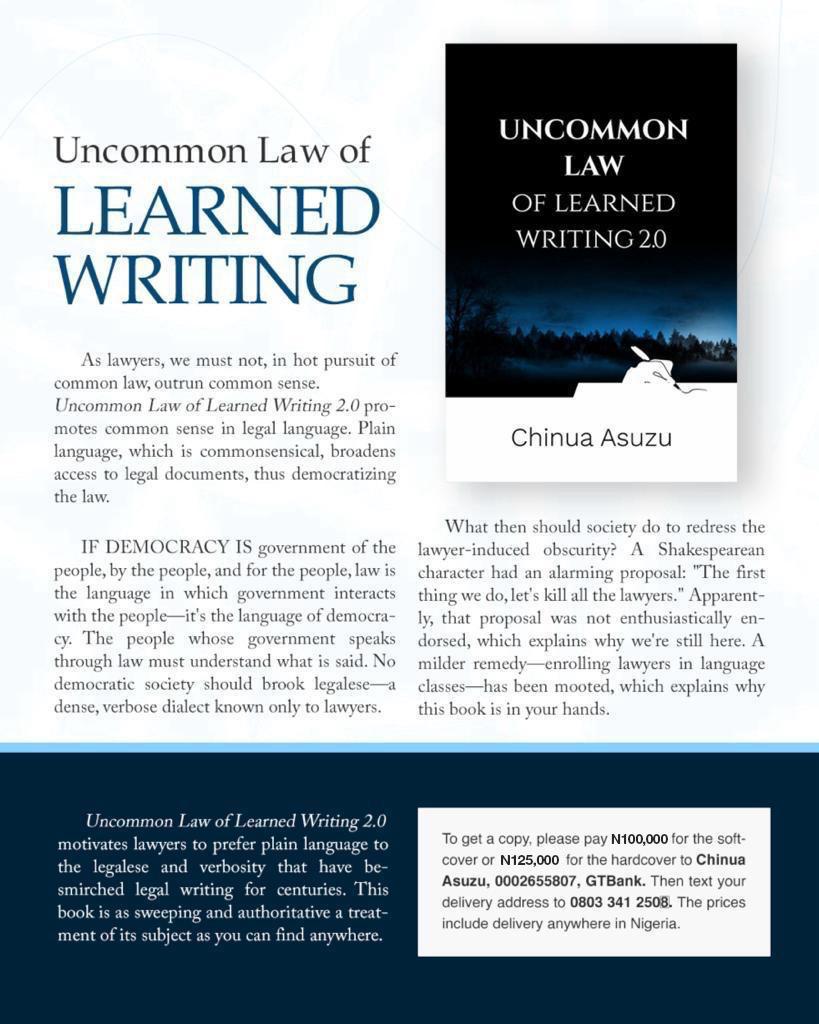Don’t be a headnote lawyer.
*By Chinua Asuzu*
Don’t be a headnote lawyer—an attorney “who relies on the headnotes of judicial opinions rather than taking the time to read the opinions themselves.” _Black’s Law Dictionary_.
In _Franchal v Nigeria Arab Bank_, [2000] 9 NWLR (Part 671) 1 (SC), 13H–14A (Uwais CJN), the Supreme Court characterized headnote lawyers as “lazy,” saying, “It is lazy for counsel to rely on headnotes in law reports.”

Headnotes are the law reporter’s numbered paragraphs summarizing *what the law reporter considers* the key points of a judicial decision.
They should merely point you to the parts of the decision of particular interest or value to you.
“Because headnotes are research tools and are not written by judges, never [cite or quote them or from them].
Also, never depend on a headnote to supply your understanding of the case.” Mary Barnard Ray & Jill J. Ramsfield, _Legal Writing: Getting It Right and Getting It Written_, 4th ed. (Thomson West, 2005), 179.
Few law reporters write good headnotes. Most headnotes are too detailed, too long, too rambling, and too repetitious. Good headnotes shouldn’t exceed a page. And they shouldn’t quote the justices at any length.

They should summarize each decision point in a 4- or 5-line paragraph and then point to the pertinent pages and paragraphs in the judgments.
The decision points themselves shouldn’t exceed four. So the headnotes of any case shouldn’t go beyond 4 paragraphs.
Whether the headnotes are good or bad, never quote from or even cite them. Don’t read just the headnotes. Read the decisions at length and in depth.
Unfortunately, many lawyers quote the law reporter, instead of the court. They call the headnotes “ratios.”
They arrogate to the law reporter the power to decide what the _rationes decidendi_ of cases are. This perfidious and pernicious habit of relying on law-reporter-generated “ratios” should be sanctionable malpractice.
Let’s quarantine this epidemic of false ratios. Headnotes are NOT ratios!
Read More:
- Chinua Asuzu: Craft Arguments That Win Cases
- Pinciting in Legal Writing: Making the Court’s Work Easier and Boosting Your Credibility









